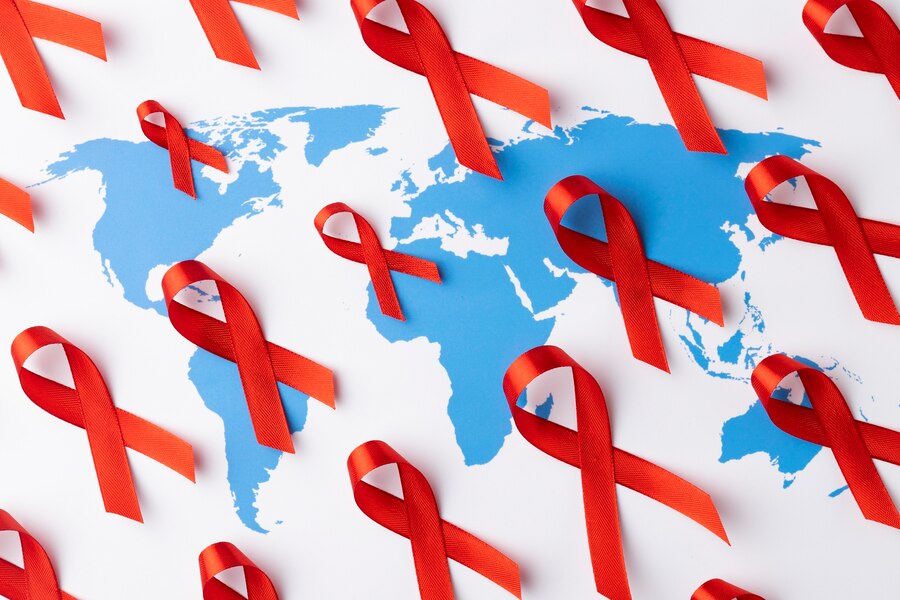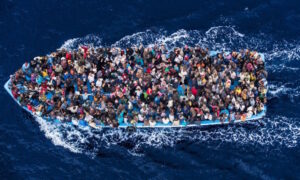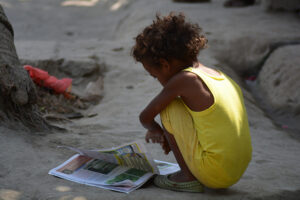
Why can’t we remain indifferent to HIV?
The immunodeficiency virus can be infected by both the rich and the poor. Both an adult and a child. The virus does not choose its victims, although some people create treatment privileges for themselves. In other words, when all the infected can be saved, only the chosen ones are saved. Why is this happening?
Nadja Benaissa
I will start with an example. German singer Nadja Benaissa posted on Instagram about the event where Deniz Ohde’s novel Streulicht (Sky Glow) was discussed. Participants talked about issues of education, pop culture, racism and much more. According to her, the discussion was like a journey into the past: it was attended by her former teachers and the guitarist of her first band.
In the past, a woman found herself in a very difficult situation. She was known as the lead singer of the band No Angels. In 2010, Nadja Benaissa was sentenced to 2 years’ probation and 300 hours of community service. The reason was that she had unprotected sex with men without warning of her HIV diagnosis. One of the men got infected. Nadja was diagnosed with HIV when she was 16 when she was pregnant. As a teenager, she got into bad company where she smoked, did drugs and drank. According to Nadja, she did so because of her stern father. After the trial, the singer went to her senses: she is into fitness, teaches classes herself and is actively involved in projects related to the fight against HIV/AIDS.
A lot of celebrities have dared to admit that they have tested positive for HIV and then move on to a full life, continuing their career. In May 2021, Billy Porter, actor, playwright, singer, winner of the most prestigious awards made such recognition. For 14 years, he hid his diagnosis, fearing that he would no longer be invited to appear in films and plays.
Terrible statistics
I think it is easier for celebrities, as people with high social status, to accept such a terrible diagnosis. At a minimum, they have access to medical and psychological care. While one million children in poor countries are doomed to die from HIV.
According to statistics, the level of funding for the fight against AIDS has fallen by a third over the past two years. As a result, the United Nations Programme on HIV/AIDS (UNAIDS) forecasts a significant increase in the number of infected and, as a result, deaths:
• 7 million people will have died of AIDS by 2030
• 50% of these deaths can be avoided if HIV is fully funded
If you look at the entire planet, out of 38 million people living with HIV, almost 6 million are not receiving the necessary treatment. Another reason is insufficient detection of the disease. As a result, hundreds of thousands of people with a positive diagnosis remain untreated. 25% of adults and 50% of children do not receive therapy. Those are terrible numbers. After all, it was adults who infected children with the virus.
Of the recent successes in the fight against HIV, only the spread of the virus in Africa has decreased. However, gay men, one of the most vulnerable populations to HIV, are still infected at the same rate as before.
Donation
According to the UNAIDS, low- and middle-income countries need to invest $29 billion each year to meet their AIDS targets. Let me remind you that the WHO has set a global goal for the countries of the world to end the AIDS epidemic by 2030. There are only seven years left before that deadline, and it seems to me that not enough is being done at the moment. Unless, traditionally, on World AIDS Day (1 December), everyone suddenly recalls the problem.
The World Health Organization (WHO) also calls on world leaders to ‘resolutelytackle HIV’, to provide prevention, diagnosis and treatment for at-risk groups. I associate myself with those words and with the initiative to combat the virus. Not just in words, but in deeds. I recently donated 200,000 euros to the Elton John AIDS Foundation. It is this organization that supports and treats infected people around the world. At the same time, I call on everyone to donate money to funds fighting HIV. Even a few euros you transfer could save a man’s life on the other side of the world.
It is also very important to take an active life stance on this issue and react if, for example, a violation of the patient’s rights occurs before your eyes. Or if you hear about such facts from friends you know. You can and should demand access to medical services for yourself and for other patients. After all, the authorities in the country will come to you in a few years and ask for your votes in the elections. It is an active lifestyle that will enable us all to save thousands of people around the world from dying of HIV.





